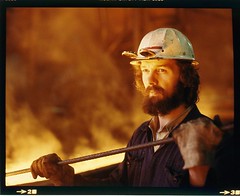 2012 has been a challenging year so far for the leadership of Richmond Power & Light, Richmond's municipally owned power company.
2012 has been a challenging year so far for the leadership of Richmond Power & Light, Richmond's municipally owned power company.
Most of the strife centers around the firing of RP&L General Manager Steve Saum; the short version is that the Board of Directors unexpectedly removed Saum from his position after a negative performance review, and Saum along with others are concerned that he wasn't given due process. After the story hit the media, there's been additional concern about the way the RP&L Board has (or has not) communicated the reasoning behind their decision and what it means for the future of the utility. There's a story in today's Palladium-Item with some new revelations about the proceedings.
Few are in any good position to pass judgment on these matters. In my limited interactions with Steve Saum I've always found him to be a person of good intent and competence in his leadership. I also know most of members of the RP&L Board well enough to say they are people of good intent and great care for the future of RP&L and the City. (Full disclosure: I ran unsuccessfully for election to the RP&L Board last year.) And no matter what you think of any of their actions or decisions, it's just a painful and messy thing when matters of someone's employment and livelihood (or managerial methods) become a topic of public conversation.
But even with the limited facts available about this series of events, it seems there are some missed opportunities to reflect on moving forward:
Continue reading "RP&L, Steve Saum and employee performance reviews"


